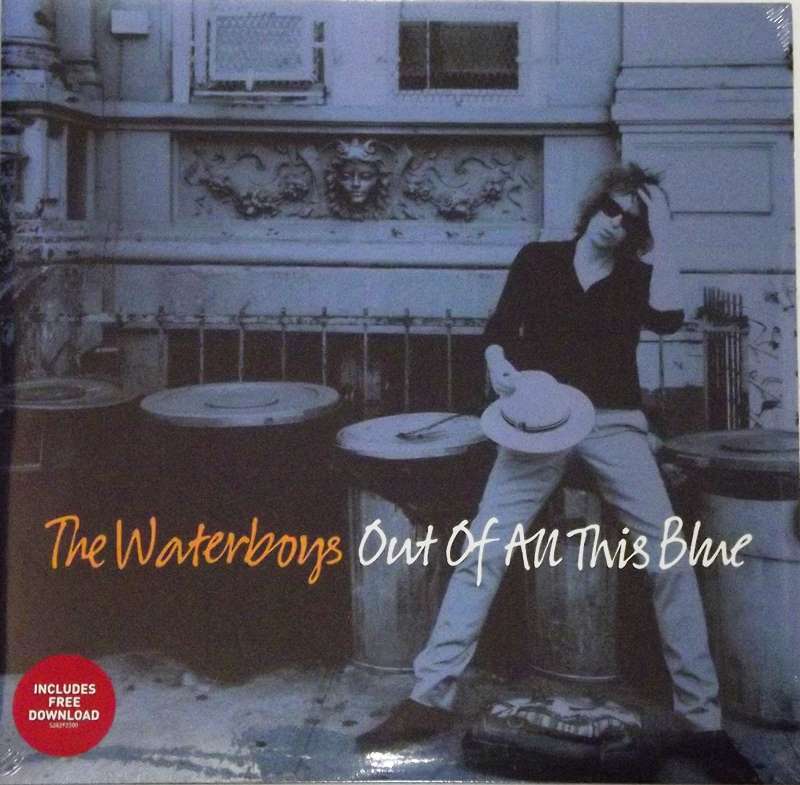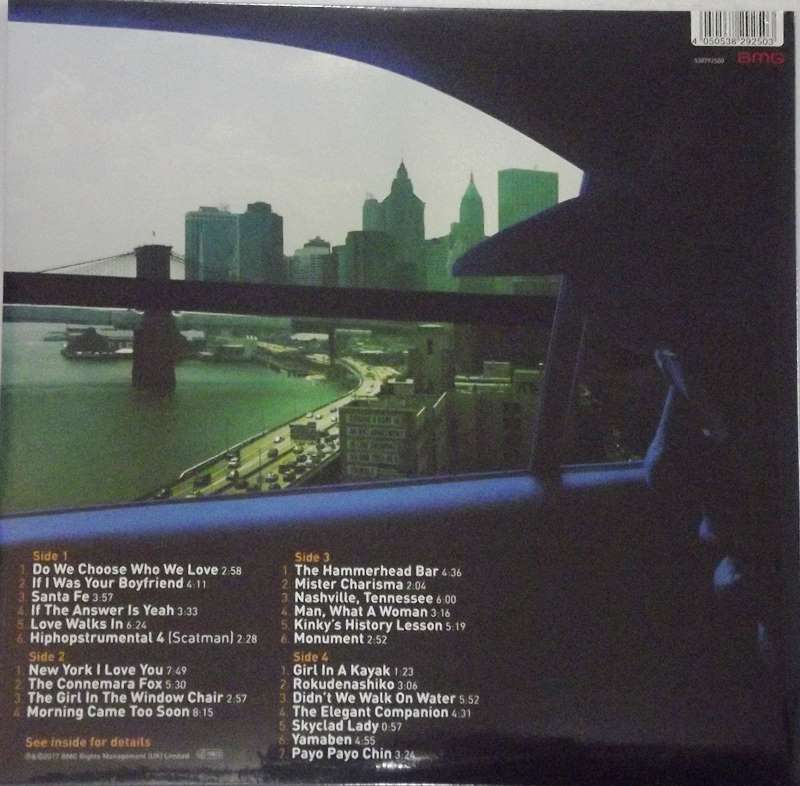

| Product Code: | 538292500 |
| Artist: | Waterboys The |
| Origin: | UK & Europe |
| Label: | BMG (2017) |
| Format: | 2 X LP |
| Availability: | In Stock |
| Condition: |
Cover: M
Record: M
|
| Genre: | Pop N |
Sealed brand new double album housed in a gatefold cover.
Mike Scott takes his long-running Irish/Scottish folk rock band the Waterboys into new terrain on his latest LP—incorporating four-four disco stomp, a heavy dose of hip-hop, and romantic love.
Mike Scott has never been one for small gestures. It takes some measure of chutzpah to describe your art as “big music,” which is precisely what Scott did on a 1984 single by his Scottish/Irish folk rock band, the Waterboys. “Big music”—like an earnest, echoing fusion of Bruce Springsteen and Van Morrison—was a term amorphous enough that not even indie stalwart Alan McGee could explain it. But the very name conveyed ambition, or arrogance, and those are the two qualities that have been constants in Scott’s work, no matter who is in the Waterboys or what kind of music they’re playing.
Take Out of All This Blue, the new album from the Waterboys that marks a clear departure from their best-known records: the galvanizing 1985 LP This Is the Sea and 1988’s ramshackle Fisherman’s Blues. In its simplest incarnation, it’s a 23-track double album running 96 minutes, but add the 11-track bonus disc to the mix and Out of All This Blue balloons to two hours and 16 minutes. What spurred Mike Scott to indulge in his loquacious tendencies? A new love, naturally. Between 2015’s Modern Blues and Out of All This Blue, he fell in love and married the Japanese artist Megumi Igarashi—better known as Rokudenashiko—and the couple had a child. All this joy informs the songs and spirit of Out of All This Blue, whose very title, if viewed from a certain angle, suggests a triumphant emergence from sadness.
Along with a new romance comes a new set of influences for Scott. He accentuates the R&B that lurked on the edges of Modern Blues, insisting his “soul is in Memphis” even if “his ass is in Nashville, Tennessee” on a song named for the latter city. He hauls out a glitter ball for the four-four disco stomp “Monument” and adds a heavy dose of hip-hop. Scott realizes he is a few decades late to this game, but he maintains hip-hop is “still a changing frontier” of “reckless freedom.” These admirable sentiments are somewhat undermined by “Yamaben,” which sounds like the ghost of the Stereo MC’s, and how Scott thought it was wise to call an interlude “Hiphopstrumental 4 (Scatman),” a title that is pretty much the walking definition of a dad joke.
Such misses may be inevitable on an album as long as Out of All This Blue, but as the record crawls to its conclusion, these absurdities—which find companions in all manner of music and words—are ingratiating because they stem from Scott’s inherent pomp. Nearly 35 years after the Waterboys’ full-length debut, he’s still besotted by poets and idols, as apt to churn out purple prose as crack a wry aside. He’s the kind of guy who places equal weight on the questions “can you live with a man without becoming his mother” and “can you tell me the last six books you read” when courting a potential paramour (“If the answer is yeah,” he sings, then he’s into you).
If anything, Scott’s romantic instincts are accentuated in an unprecedented way on Out of All This Blue because so much of this lengthy album is devoted to love songs. Scott may ponder the question “Do We Choose Who We Love” on the track of the same name, but he doesn’t hesitate to single out Rokudenashiko or nod to her via a song named after a Japanese term of endearment (“Payo Payo Chin”). Coming from a singer/songwriter who used to strive to write for the world at large, such specificity is endearing—endearing enough that it can often excuse the dorky dance beats and other gauche production decisions. After all, part of Scott’s charm is his willingness to risk embarrassment, so it seems only right that an unfettered and smitten Scott feels free to let it all hang out on Out of All This Blue, both for good and ill.